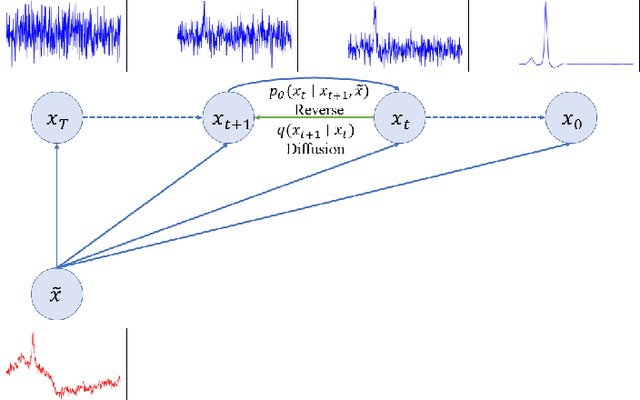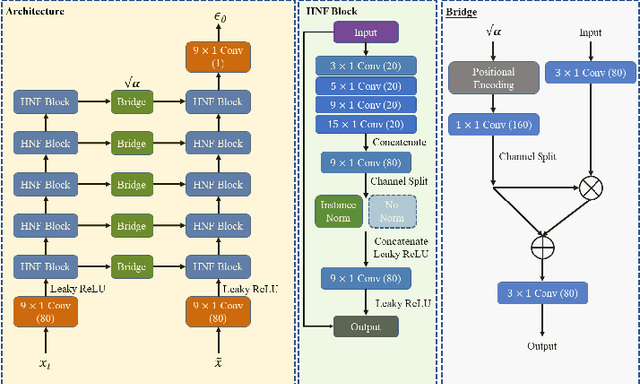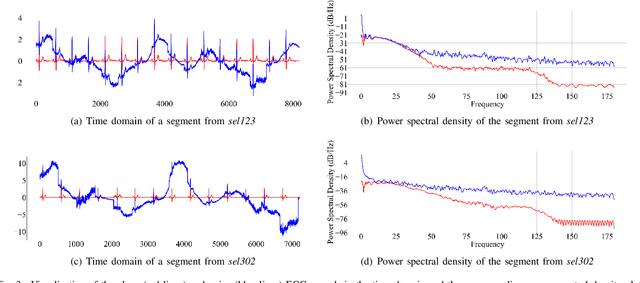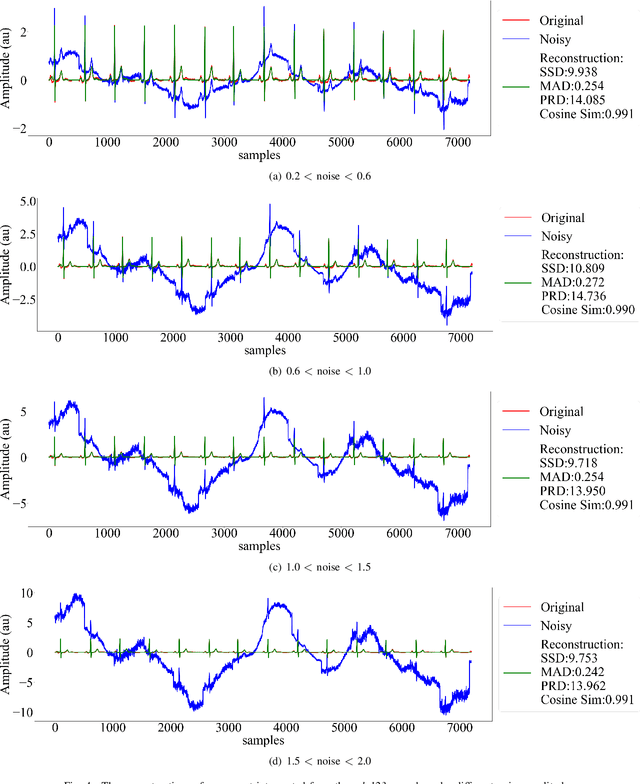DeScoD-ECG: Deep Score-Based Diffusion Model for ECG Baseline Wander and Noise Removal
Paper and Code
Jul 31, 2022



Objective: Electrocardiogram (ECG) signals commonly suffer noise interference, such as baseline wander. High-quality and high-fidelity reconstruction of the ECG signals is of great significance to diagnosing cardiovascular diseases. Therefore, this paper proposes a novel ECG baseline wander and noise removal technology. Methods: We extended the diffusion model in a conditional manner that was specific to the ECG signals, namely the Deep Score-Based Diffusion model for Electrocardiogram baseline wander and noise removal (DeScoD-ECG). Moreover, we deployed a multi-shots averaging strategy that improved signal reconstructions. We conducted the experiments on the QT Database and the MIT-BIH Noise Stress Test Database to verify the feasibility of the proposed method. Baseline methods are adopted for comparison, including traditional digital filter-based and deep learning-based methods. Results: The quantities evaluation results show that the proposed method obtained outstanding performance on four distance-based similarity metrics (the sum of squared distance, maximum absolute square, percentage of root distance, and cosine similarity) with 3.771 $\pm$ 5.713 au, 0.329 $\pm$ 0.258 au, 40.527 $\pm$ 26.258 \%, and 0.926 $\pm$ 0.087. This led to at least 20\% overall improvement compared with the best baseline method. Conclusion: This paper demonstrates the state-of-the-art performance of the DeScoD-ECG for ECG noise removal, which has better approximations of the true data distribution and higher stability under extreme noise corruptions. Significance: This study is one of the first to extend the conditional diffusion-based generative model for ECG noise removal, and the DeScoD-ECG has the potential to be widely used in biomedical applications.
 Add to Chrome
Add to Chrome Add to Firefox
Add to Firefox Add to Edge
Add to Edge